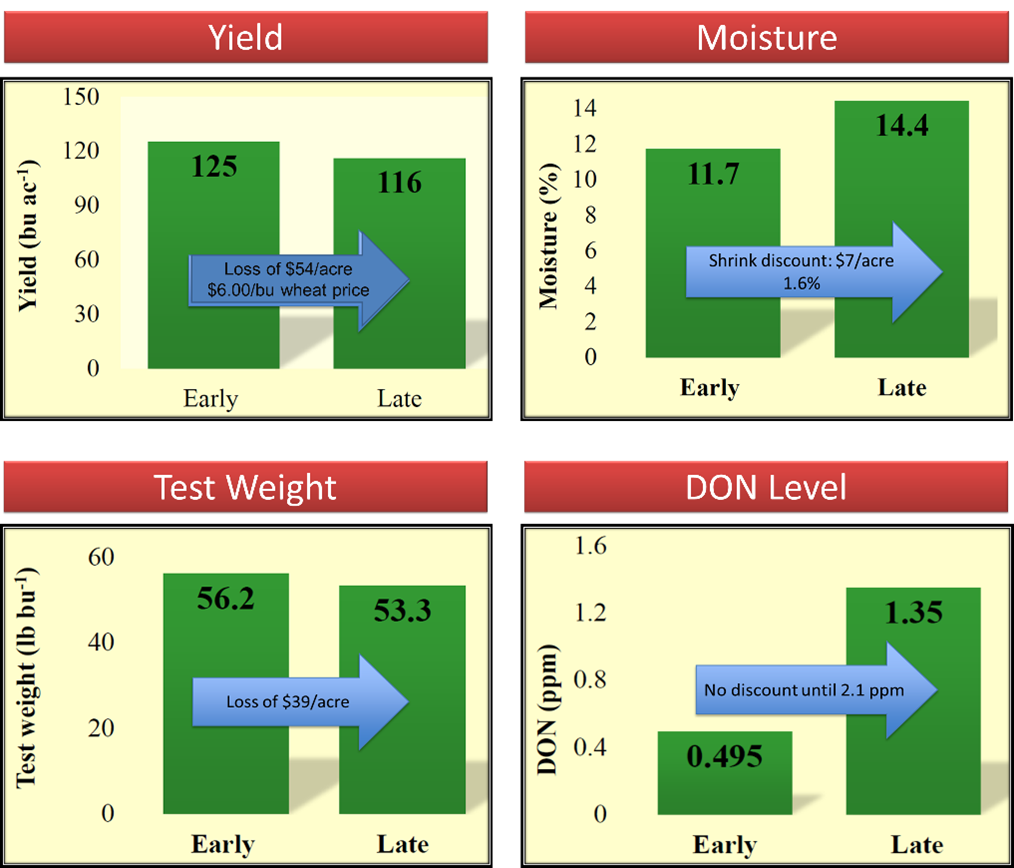Wheat harvest date could impact both grain yield and quality. Delaying wheat harvest puts the crop at risk for increased disease, lodging, sprouting, harvest loss, and grain contamination with mycotoxins. Even though head scab seems to be relatively low across the state this year, delaying wheat harvest could cause increased levels of vomitoxin contamination of grain, particularly if it rains for several days leading up to harvest.
In 2018, we evaluated wheat harvested on June 29 (at 12% moisture content) and July 8 (at 14% moisture content). Grain moisture increased between June 29 and July 8 due to 0.58-inch rain between the two dates. When the wheat harvest was delayed until July 8, yield decreased by 9 bu/acre, test weight decreased by 2.9 lb/bu, and DON (vomitoxin) level increased by 0.86 ppm (see figure). These reductions in yield and test weight and increase in DON are likely attributed to the re-wetting of dry grain, showing the importance of the timely wheat harvest

DON'T DELAY. Delaying wheat harvest can be detrimental in several ways. In a 2018 study, wheat harvested on July 8 instead of June 29 saw a loss of $54 per acre in yield, a shrink discount of $7 per acre due to higher moisture levels, a drop in test weight amounting to $39 per acre and a 172% increase in vomitoxin levels.






